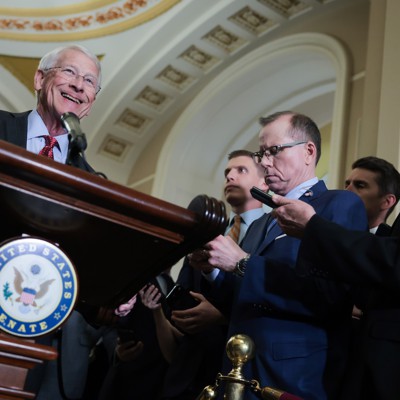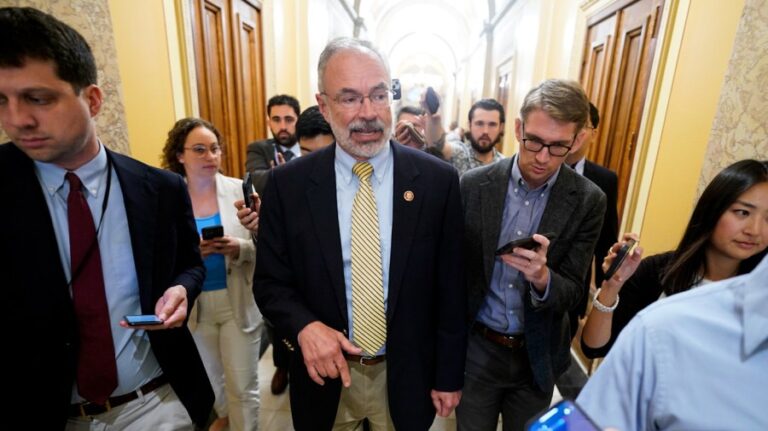In a significant legislative move, the U.S. House and Senate leadership have advanced a comprehensive defense reconciliation bill, marking a pivotal step in revitalizing and transforming the American military. This development follows weeks of intense negotiations aimed at fulfilling promises of military reform, tax restructuring, and border security. The bill represents a once-in-a-generation opportunity to implement pro-growth tax rates, bolster national defense, and roll back spending associated with the Green New Deal and the Inflation Reduction Act.
The urgency of the bill stems from the impending expiration of the 2017 tax cuts, which has accelerated legislative efforts to address defense priorities. Last month, key leaders met with President Trump in the Oval Office, underscoring the bill’s importance as a foundational investment in the administration’s “peace through strength” strategy.
Golden Dome Initiative and Missile Defense
Shortly after the Oval Office meeting, President Trump unveiled the $175 billion Golden Dome initiative, a transformative plan to enhance missile defense capabilities. The reconciliation bill allocates $25 billion to kick-start this initiative, aiming to protect the homeland and military personnel from various missile threats, including ballistic, cruise, and hypersonic missiles.
Moreover, the bill addresses the need for a comprehensive overhaul of the defense industrial base. It dedicates over $25 billion to replenish munitions stockpiles, integrate advanced manufacturing technologies, and rebuild critical mineral supply chains, in line with a presidential executive order.
Modernizing Military Assets
The bill also targets modernization efforts for the nation’s nuclear arsenal and Air Force fleet, allocating $14 billion and $9 billion, respectively. These upgrades are deemed essential to maintaining a competitive edge in global military capabilities.
In addition to these efforts, the bill supports border security enhancements with a $1 billion investment aimed at strengthening the Pentagon’s logistics and personnel support along the U.S. border. This move builds on previous successes in border security under the Trump administration.
Naval Expansion and Pacific Strategy
President Trump’s commitment to revitalizing American shipbuilding is reflected in the bill’s $29 billion allocation for the maritime sector. This funding will boost production of traditional ships and submarines and initiate mass production of unmanned vessels, enhancing U.S. naval power in the Pacific. The bill further supports Pacific capabilities with a $12 billion investment in infrastructure and capabilities, as emphasized by Adm. Samuel Paparo, the Pacific commander.
Support for Service Members
The reconciliation bill ensures direct benefits for service members, with $10 billion earmarked for pay, allowances, housing, healthcare, and family assistance. Additionally, $14 billion is allocated for basic readiness, infrastructure improvements at depots and shipyards, and expanding spare parts inventories for repairs and maintenance.
These investments address years of neglect, with the total defense investment reaching $150 billion. Experts argue that sustained investment is crucial to keeping pace with China’s military advancements. The completion of the Golden Dome alone is projected to require an additional $150 billion.
“The cost of deterring war will always be dwarfed by the cost of fighting one,” emphasized a senior defense official.
Ensuring Accountability and Future Reforms
The bill mandates an audit by Defense Secretary Pete Hegseth to ensure efficient use of funds. It incorporates automation and artificial intelligence into the Pentagon’s accounting processes, aiming for a clean audit by 2028. This move is part of a broader effort to spend smarter while increasing defense expenditure.
Looking ahead, the Chairmen of the Senate and House Armed Services Committees, Sen. Roger Wicker and Rep. Mike Rogers, have confirmed ongoing reform efforts. They are working on the FORGED Act and SPEED Act to overhaul Pentagon acquisition and innovation processes, marking the most significant changes in four decades.
Critics of the previous administration argue that it failed to address growing global threats adequately. In contrast, President Trump and Congressional Republicans assert that strengthening American military power is essential to deterring aggressive adversaries and ensuring national security.
This reconciliation bill is a crucial first step towards achieving a robust defense posture, aligning with the broader “peace through strength” agenda. As the legislative process continues, the focus remains on ensuring that these investments yield tangible improvements in military readiness and capability.























